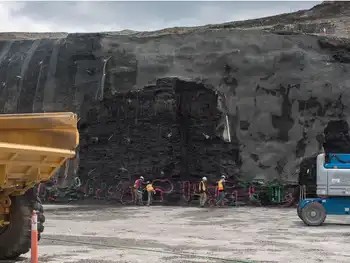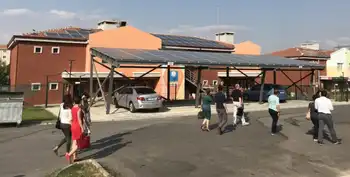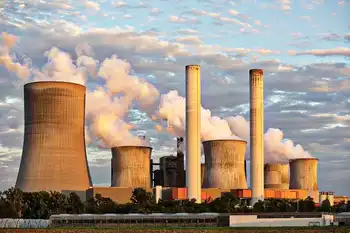North Korea to restart nuclear talks
TOKYO, JAPAN - North Korea is committed to unconditionally resuming talks on its atomic weapons program and returning to the international nuclear non-proliferation pact, a former U.S. ambassador to the United Nations said recently after days of talks in Pyongyang.
New Mexico Gov. Bill Richardson, who was in the communist country at the invitation of the government, said the North had also pledged to allow outside oversight of its disarmament.
However, Richardson also said North Korean was still running nuclear facilities believed to be at the centre of their weapons program, and had reprocessed spent nuclear fuel this year into plutonium, a raw material for nuclear bombs.
His trip came amid a new burst of diplomacy ahead of the next round of six-party talks on North Korea's nuclear weapons program.
Chinese President Hu Jintao will visit North Korea, and the chief U.S. envoy to the talks planned to meet with Chinese and Japanese officials soon.
Richardson, a Democrat who travelled to Pyongyang with the approval of the Republican-led government, said North Korean officials had a more positive attitude toward the United States and were more open about their nuclear activities than they have been in the past.
Pyongyang, for example, guaranteed that it would attend the next round of six-party talks — expected in early November in Beijing — without conditions, Richardson said.
"The six-party talks are crucial. They believe very strongly in resolving those issues because they recognize it's an opportunity for them to get out of international isolation," he told reporters in Tokyo before heading to Seoul, South Korea.
"I believe they're sending signals of wanting to engage, but there are some tough negotiations ahead," Richardson said. "And I'm not saying that they're going to be easy."
The most recent round ended in September with North Korea pledging to abandon its nuclear program, which it claims has already yielded weapons.
The next talks, which involve China, Japan, the two Koreas, Russia and the United States, are scheduled for November but no date has been set.
One sticking point is Pyongyang's demand that in exchange for giving up its nuclear program, it is provided with a light-water nuclear reactor to meet its dire energy needs. Light-water reactors are believed to be less easily diverted for weapons use.
The United States, however, says this issue should be tackled only after Pyongyang has verifiably dismantled its weapons efforts.
Richardson said the officials he spoke to — including Kim Yong Nam, the country's No. 2 leader after Kim Jong Il — suggested they would allow the United States and others to closely monitor the operation of the reactor to ensure none of the spent fuel was diverted to weapons production.
Richardson said while he was in North Korea, he toured its Yongbyon nuclear facility and spoke with the plant's director, learning that the North Koreans had refuelled the plant in April.
Officials indicated they had reprocessed all the spent fuel into plutonium, his delegation said. A member of his delegation, Jeffry Sterba, chairman of PNM Resources, a New Mexico-based energy company, estimated that amount of spent fuel would yield between five and six kilograms of plutonium.
"I urged them in the strongest possible terms to shut down the reactor during the six-party talks as a sign of good faith," Richardson said, adding that his suggestion was under consideration.
Richardson said that he pressed his hosts about the number of nuclear weapons they had produced, but got no clear answer.
"They've stated that they have them in the past. My sense was two (bombs), perhaps, that's my sense," he said. "I pressed, but that's the best I got — but I can't verify that."
Richardson said that the North Koreans had backed off from demanding the departure of humanitarian aid workers in the impoverished country.
Pyongyang is now only asking that the presence be reduced over time and that the humanitarian aid be redefined as economic development assistance.
The trip is part of a series of diplomatic moves surrounding North Korea this month.
Chinese President Hu will begin a three-day trip to North Korea next Friday at the invitation of Kim Jong Il, the official Xinhua News Agency said. China is North Korea's last major ally and a key supplier of food and energy aid.
In addition, U.S. Assistant Secretary of State Christopher Hill was to meet with China's deputy chief negotiator to the six-way talks, Li Bin, in Hawaii on Monday, and Japan's representative to the talks, Kenichiro Sasae, on Oct. 31, a U.S. Embassy spokesman in Tokyo said.
Also Friday, U.S. Defence Secretary Donald Rumsfeld and his South Korean counterpart, Defence Minister Yoon Kwang-ung, issued a joint statement hailing a promise by North Korea to abandon its nuclear program, but stressing the need for verifiable progress.
Related News

Opinion: Would we use Site C's electricity?
VANCOUVER - There are valid reasons not to build the Site C dam. There are also valid reasons to build it. One of the latter is the rapid increase in clean electricity needed to reduce B.C.’s greenhouse gas emissions from burning natural gas, gasoline, diesel and other harmful fossil fuel products.
Although former Premier Christy Clark casually avoided near-term emissions targets, Prime Minister Justin Trudeau has set Canadian targets for both 2030 and 2050. Studies by my research group at Simon Fraser University and other independent analysts show that B.C.’s cost-effective contribution to these national targets requires us to reduce our…




